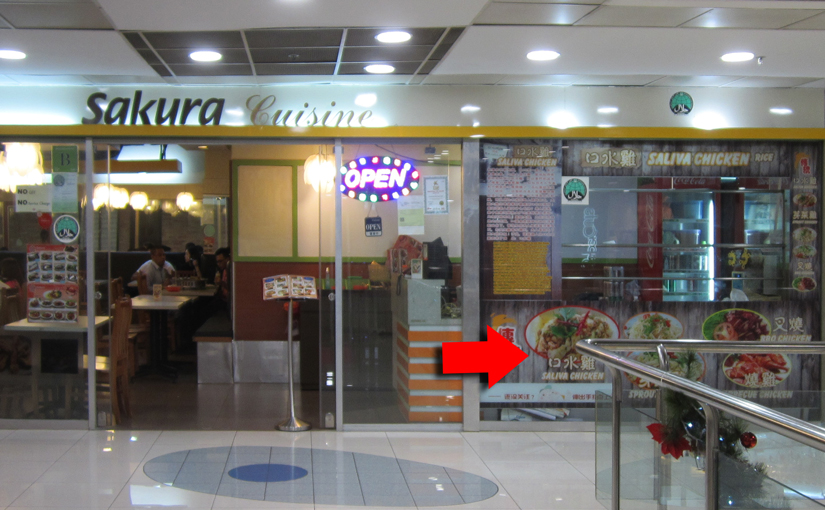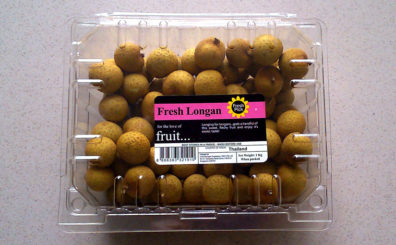
Sakura Cuisine’s Saliva Chicken
I posted a photo of this restaurant before because the name seemingly advertised so many kinds of food. They’ve simplified the name—presumably not because they saw my blog post, but who knows?
Now they are promoting a dish they call “Saliva Chicken”.
The Chinese name of the dish is three characters (that’s the traditional one for chicken, not the simplified one):
口水雞
mouth water chicken
Note that there is no sure-fire way to determine how many characters in Chinese correspond to a “word” in English. If you take the first two characters together, they mean “saliva”, because that’s what “mouth water” is.
口水
saliva
The restaurant seems to be offering a chicken dish cooked with saliva (?!), but actually it just wants you to order the chicken dish that makes you salivate. If they’d named it “mouth-watering chicken” in English, the name would have been perfectly unobjectionable.
In my opinion, the problem is not that the Chinese language is hard, or that English is hard, just that translation is hard. All languages assign meanings in arbitrary ways. Why, after all, should we English speakers think that “saliva chicken” sounds gross, but “mouth-watering chicken” sounds delicious? This distinction is not meaningful in Chinese, any more than the distinction between “cow meat” (eew) and “beef” (yum).



